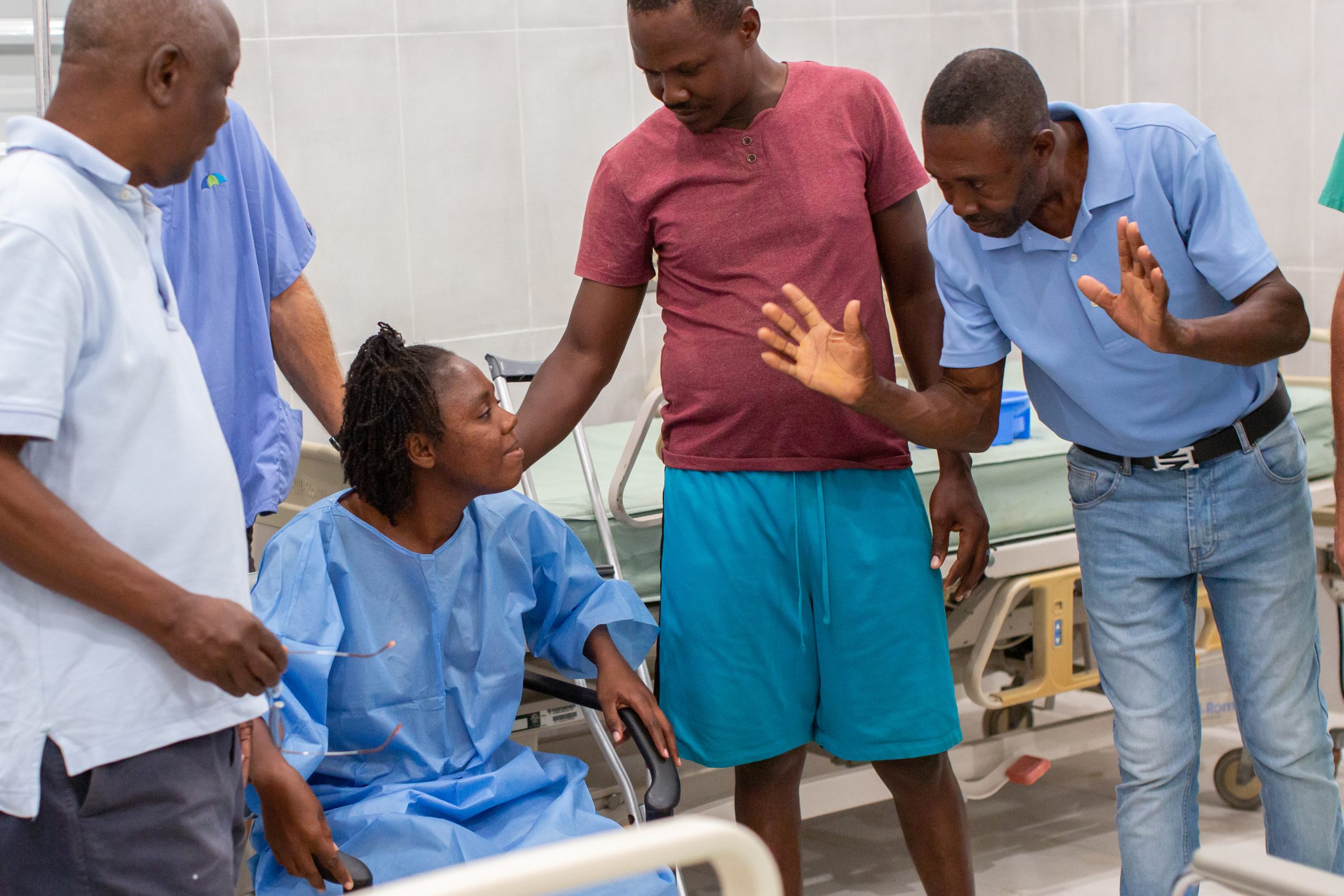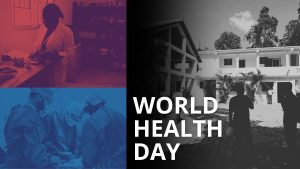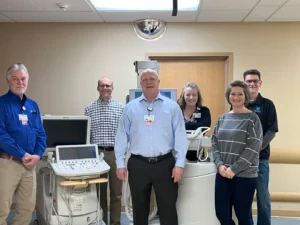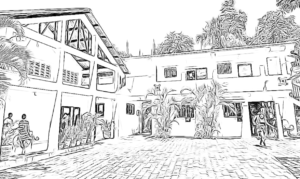World Patient Safety Day 2023: Reflecting on God’s Promise for His Patients; a Promise of Patient Safety and Peace.
God lays out His Promise of Restoration to Jeremiah in Chapter 33. Part of that promise is our Heavenly Father, the Great Physician, promising healing and health embedded in peace and security. In Jeremiah 33:6 God states, “Nevertheless, I will bring health and healing to it; I will heal My people and will let them enjoy abundant peace and security.”
The WHO (World Health Organization) is so dedicated to patient safety across the world that in 2021, they implemented a Global Patient Safety Action Plan. Declaring September 17th of each year since 2019, “World Patient Safety Day,” WHO calls on medical professionals and patients to collaborate in efforts to improve patient safety. This day calls for a unified, collective action in all countries, to take intentional steps toward achieving two main goals through four specific objectives. The two main goals are:
- For patients to receive safe care in any and all health facilities by engaging and empowering patients and families to support the journey to safer healthcare.
- For all healthcare professionals to avoid preventable harm. This objective includes having zero incidences of avoidable harm to a patient’s state of mind while in the care of the facility and ensuring a constant flow of information.
And for 2023, the four main objectives used to reach these goals which can be found at World Patient Safety Day 2023: Engaging Patients for Patient Safety include:
- Raise global awareness of the need for active engagement of patients and their families and caregivers in all settings and at all levels of health care to improve patient safety.
- Engage policy-makers, health care leaders, health and care workers, patients’ organizations, civil society, and other stakeholders in efforts to engage patients and families in the policies and practices for safe health care.
- Empower patients and families to be actively involved in their own health care and in the improvement of safety of health care.
- Advocate urgent action on patient and family engagement, aligned with the Global Patient Safety Action Plan 2021–2030, to be taken by all partners.
So what happens to global goals and initiatives such as this when there has been a shut down of supply chain, infrastructures have been destroyed, hundreds of thousands of people are displaced, there is an outbreak of infectious disease, and the food, water and medication supply is extremely limited? What happens when patient safety from all perspectives is not guaranteed because healthcare worker safety (again, from all perspectives) is not guaranteed? If the intention is to reach these goals globally by 2030, Haiti has a long way to go.
Security within the country must be restored in order for the healthcare system to regain some footing. Routes to many healthcare facilities are either blocked by gangs, or patients are required to traverse through gang territory in order to access needed services. The risk of being killed, kidnapped, or becoming a victim of gender based violence is so great that many choose not to attempt the journey no matter how ill. This same danger makes the risk of accessing clean water so great that many resort to whatever source of water they can find. Cholera, among other waterborne illnesses, has been reintroduced and is spreading uncontrollably with many facilities unable to treat. For disease tracking purposes, patients presenting with symptoms cannot be tested to justify reporting cholera as many facilities do not have access to testing. The same blocked routes preventing clean water access are also preventing the access to medication which results in extremely inflated prices, if the medication can be found in the country. Due to the continued rise in violence spreading across the country, all levels and disciplines of health care staff are leaving the country in hopes of finding safety in another country. Haitians who aspired to one day work alongside those leaving, don’t have access to start, continue, or certify training which lastly qualifies them to start practicing.
Because of the “war zone”, this being the description many have used when referring to Haiti in the past year, the need for safe access to healthcare in Haiti is more severe than ever! Some examples of how the insecurity is driving a healthcare crisis include the following:
- It is estimated that more than 115,600 children are expected to suffer from severe wasting by the end of 2023. This number has increased by 30% since last year, according to UNICEF.
- UNICEF reported over 3 million children in Haiti are in need of humanitarian assistance, the highest number on record. Nearly 3 million children need support in Haiti – highest number on record | UNICEF USA.
- Since October 2022, there have been 58,230 suspected cases of cholera reported.
- 389 kidnappings occurred in the first quarter of 2023–an increase of over 173 percent compared to 2021 and 72 percent compared to 2022.
- In a 24 hour time period, (April 24, 2023), an MSF (Medecins Sans Frontieres, Doctors Without Borders) hospital treated 50 people with gunshot and knife wounds.
- In the first five months of 2023, MSF assisted 1,005 survivors of sexual violence in Port-au-Prince–almost twice the number during the same period of 2022. That is just one hospital.
- Of approximately 50 hospitals in Port-au-Prince, 48% are in areas under gang control. Many are forced to shut their doors for weeks or months at a time (some indefinitely) in order to keep their staff and patients safe.
Because patient involvement is important, as WHO clearly explains in their plan, interviews and surveys have been conducted to find out how the patients feel about the inability to receive safe patient care. For instance, MSF conducted interviews with patients asking them to describe their lives based on the current situation. One man stated that he felt his life was ruined because he was “born in Haiti.” A woman discussed the horror of witnessing another woman and her daughter being kidnapped right in front of her eyes! Haitians of all ages, across the entire country, are experiencing mental health deterioration due to living in a constant state of fear, the fear causing insomnia, reliving the trauma from being a victim of the gangs in many ways, compounded by malnutrition and physical illness.
Haitian physicians and their medical support teams WANT to be able to provide safe patient care. They too believe ALL people deserve this right. They too want the opportunity to practice safe patient care, but in order to do so, there MUST be a resolve to the insecurity in the country.
Here is HOW YOU can help!
- Pray for the citizens of Haiti, for the leaders who are responsible for decisions made, and for the leaders and members of the gangs. Pray the entire 33rd Chapter of Jeremiah over Haiti!
- Contact your local representatives about the injustices occurring in Haiti. The sources to the statistics above are provided below. Please feel free to use these statistics to urge our leaders to step in and provide emergent humanitarian assistance!
- Aid Haitian Christian Outreach in the ability to continue providing safe patient care through the Peredo Community Hospital by becoming a recurring monthly donor. You can provide life saving medical care such as diagnostic imaging, lab testing, and more. You can also help our doctors and nurses go beyond the physical exam to provide treatment by filling the financial gap to purchase medication such as antibiotics needed to treat cholera or anesthesia medicine needed to perform emergency C-sections. Please prayerfully consider becoming a monthly donor and donate at: Give – Haitian Christian Outreach
- Share this with your church, family, and friends. The people of Haiti need you to help build awareness of the magnitude of the situation, in hopes that God moves in the hearts of all to action! View Port-au-Prince in the eyes of Haitian citizens: Caught in the crossfire: The living hell of Port-au-Prince, Haiti | MSF
Sources:
Global Patient Safety Action Plan 2021-2030
Armed violence plunging children into severe acute malnutrition in Haiti
Haiti, caught in the crossfire | Doctors Without Borders – USA





